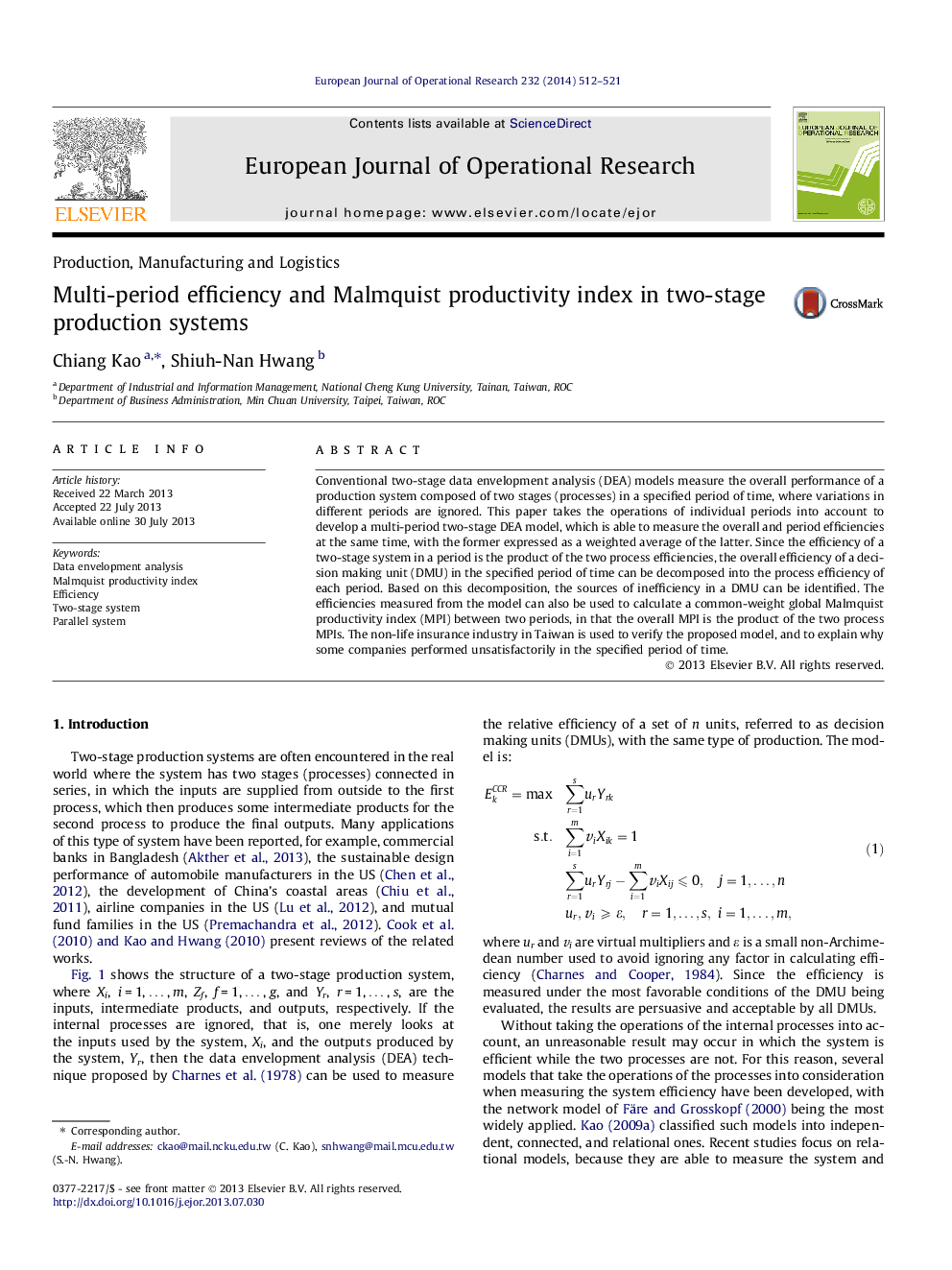| Article ID | Journal | Published Year | Pages | File Type |
|---|---|---|---|---|
| 478235 | European Journal of Operational Research | 2014 | 10 Pages |
•This paper measures the efficiency and MPI of a multi-period two-stage system.•The multi-period efficiency is a weighted average of the efficiencies of individual periods.•The overall MPI between two periods is the product of two process MPIs.•The sources of inefficiency are identified from efficiency decomposition.
Conventional two-stage data envelopment analysis (DEA) models measure the overall performance of a production system composed of two stages (processes) in a specified period of time, where variations in different periods are ignored. This paper takes the operations of individual periods into account to develop a multi-period two-stage DEA model, which is able to measure the overall and period efficiencies at the same time, with the former expressed as a weighted average of the latter. Since the efficiency of a two-stage system in a period is the product of the two process efficiencies, the overall efficiency of a decision making unit (DMU) in the specified period of time can be decomposed into the process efficiency of each period. Based on this decomposition, the sources of inefficiency in a DMU can be identified. The efficiencies measured from the model can also be used to calculate a common-weight global Malmquist productivity index (MPI) between two periods, in that the overall MPI is the product of the two process MPIs. The non-life insurance industry in Taiwan is used to verify the proposed model, and to explain why some companies performed unsatisfactorily in the specified period of time.
